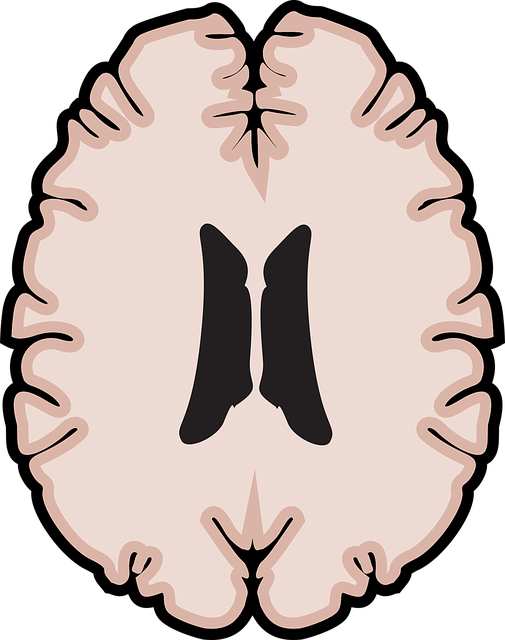Centennial Chronic Illness Therapy is a comprehensive approach that integrates emotion regulation techniques into managing chronic illnesses. By teaching mindfulness, cognitive reframing, and self-care routines, it equips individuals with tools to enhance well-being, reduce stress, and improve quality of life. Through personalized coping mechanisms and holistic practices, patients gain resilience and emotional control, enabling them to thrive despite chronic conditions.
Emotion regulation is a crucial skill, especially for those living with chronic illnesses. This article explores the significance of emotion regulation in managing long-term health conditions and introduces effective techniques through the lens of Centennial Chronic Illness Therapy. We delve into practical strategies, from understanding emotional triggers to fostering resilience. Additionally, we offer insights into overcoming challenges, ensuring readers can effectively sustain their emotion regulation skills for improved overall well-being.
- Understanding Emotion Regulation and its Significance in Chronic Illness Management
- The Role of Centennial Chronic Illness Therapy in Teaching Emotion Regulation Techniques
- Practical Strategies for Effective Emotion Regulation
- Overcoming Challenges: Tips for Sustaining Emotion Regulation Skills
Understanding Emotion Regulation and its Significance in Chronic Illness Management

Emotion regulation is a vital skill for individuals living with chronic illnesses, as it enables them to navigate the often tumultuous journey of disease management. This process involves recognizing, understanding, and managing one’s emotions effectively, which can significantly impact overall well-being and quality of life. For those enrolled in Centennial Chronic Illness Therapy, learning these techniques becomes a powerful tool to cope with the emotional challenges that frequently accompany long-term health conditions.
By teaching individuals how to regulate their emotions, therapy programs aim to boost confidence and resilience, essential aspects of mental health education. This is particularly relevant when considering the impact of chronic illnesses on daily life. Effective emotion regulation strategies can foster a sense of empowerment, helping patients navigate social interactions, make informed decisions about their care, and maintain a positive outlook despite the challenges they face. Community outreach program implementation, incorporating these emotional coping mechanisms, can further enhance support networks and overall community wellness.
The Role of Centennial Chronic Illness Therapy in Teaching Emotion Regulation Techniques

Centennial Chronic Illness Therapy plays a pivotal role in teaching emotion regulation techniques, offering individuals a holistic approach to managing their mental health. This therapeutic method recognizes that chronic illnesses often come with a range of emotions, from frustration and anxiety to depression and stress. By integrating emotional healing processes into treatment plans, it equips patients with the skills necessary to navigate these complex feelings effectively.
Through Centennial Chronic Illness Therapy, individuals learn self-care routine development for better mental health, which includes Stress Reduction Methods. These techniques foster resilience and promote a sense of control, empowering people to cope with the challenges associated with chronic illness. By mastering emotional regulation, patients can enhance their overall well-being and improve their quality of life, allowing them to thrive despite their health conditions.
Practical Strategies for Effective Emotion Regulation

Emotion regulation is a vital skill, especially for those navigating chronic illness, where managing intense emotions can significantly impact overall well-being. Practical strategies such as mindfulness meditation and deep breathing exercises offer effective tools to calm the mind and body. These techniques encourage individuals to observe their feelings without judgment, fostering a sense of detachment from overwhelming emotions.
Centennial Chronic Illness Therapy emphasizes the importance of developing inner strength through cognitive reframing and positive self-talk. By challenging negative thought patterns and replacing them with more adaptive ones, individuals can gain a sense of control over their emotional responses. Additionally, practicing gratitude and engaging in activities that promote relaxation, like exercise or spending time in nature, contribute to effective stress management. The Mind Over Matter principles teach individuals to transform their mindset, turning stressful situations into opportunities for growth and resilience, ultimately enhancing their ability to regulate emotions effectively.
Overcoming Challenges: Tips for Sustaining Emotion Regulation Skills

Emotion regulation skills, while beneficial for everyone, can be especially challenging to sustain when dealing with chronic illnesses. The constant management of symptoms and navigating healthcare systems can take a toll on mental health. To overcome these challenges, it’s essential to integrate emotion regulation into daily routines. One effective strategy is to Centennial Chronic Illness Therapy sessions where individuals learn personalized coping mechanisms tailored to their experiences.
Stress Reduction Methods, such as mindfulness meditation or deep breathing exercises, are powerful tools for immediate relief and long-term stress management. Building Self-Esteem Improvement through positive affirmations and setting achievable goals can boost resilience during difficult times. Furthermore, focusing on Inner Strength Development by identifying personal strengths and practicing self-compassion helps foster a sense of empowerment, enabling individuals to face challenges head-on with improved emotional regulation skills.
Centennial Chronic Illness Therapy plays a pivotal role in empowering individuals with chronic conditions to navigate and manage their emotions effectively. By understanding the significance of emotion regulation in illness management, this therapy offers practical strategies and overcomes challenges, fostering sustained emotional well-being. Integrating these techniques into daily life can significantly enhance the overall quality of life for those living with chronic illnesses.














